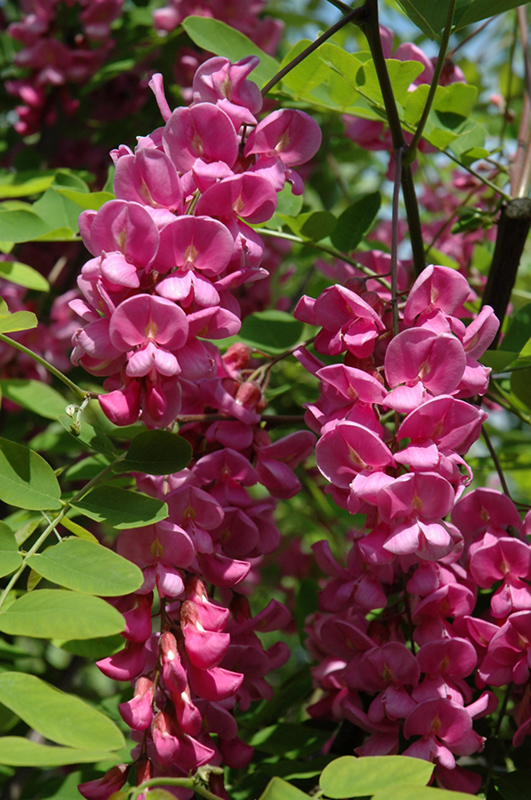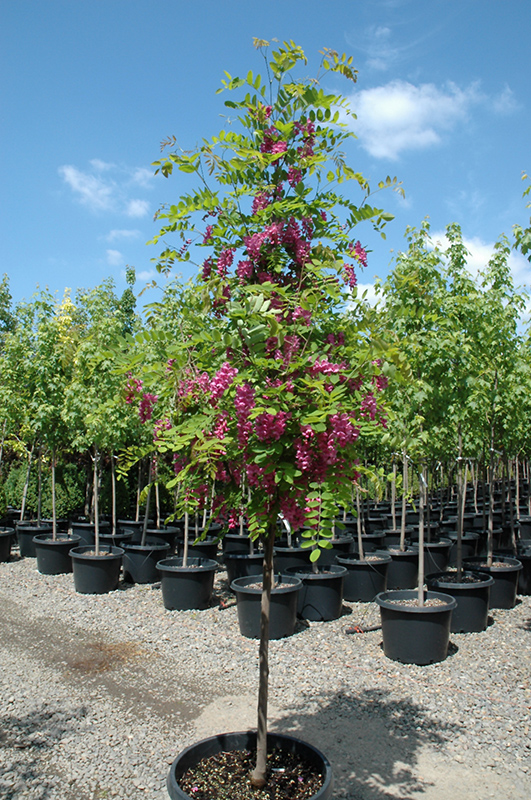PLANT FINDER
Purple Robe Locust
Robinia pseudoacacia 'Purple Robe'
Height: 40 feet
Spread: 30 feet
Sunlight:
![]()
![]()
Hardiness Zone: 4a
Other Names: Common Locust
Description:
A round-headed shade tree with highly fragrant and very attractive chains of deep pink flowers in spring; extremely adaptable, performs well in poor soils; more compact than the species, ideal as an accent tree for home landscapes
Ornamental Features
Purple Robe Locust has chains of fragrant rose pea-like flowers with yellow eyes hanging below the branches in late spring. It has bluish-green deciduous foliage which emerges burgundy in spring. The oval pinnately compound leaves turn yellow in fall.
Landscape Attributes
Purple Robe Locust is a deciduous tree with a more or less rounded form. Its relatively fine texture sets it apart from other landscape plants with less refined foliage.
This is a high maintenance tree that will require regular care and upkeep, and is best pruned in late winter once the threat of extreme cold has passed. Deer don't particularly care for this plant and will usually leave it alone in favor of tastier treats. Gardeners should be aware of the following characteristic(s) that may warrant special consideration;
- Suckering
- Insects
- Spiny
Purple Robe Locust is recommended for the following landscape applications;
- Accent
- Shade
Planting & Growing
Purple Robe Locust will grow to be about 40 feet tall at maturity, with a spread of 30 feet. It has a low canopy with a typical clearance of 5 feet from the ground, and should not be planted underneath power lines. It grows at a fast rate, and under ideal conditions can be expected to live for 60 years or more.
This tree does best in full sun to partial shade. It is very adaptable to both dry and moist growing conditions, but will not tolerate any standing water. It is considered to be drought-tolerant, and thus makes an ideal choice for xeriscaping or the moisture-conserving landscape. It is not particular as to soil type or pH, and is able to handle environmental salt. It is highly tolerant of urban pollution and will even thrive in inner city environments. This is a selection of a native North American species.



